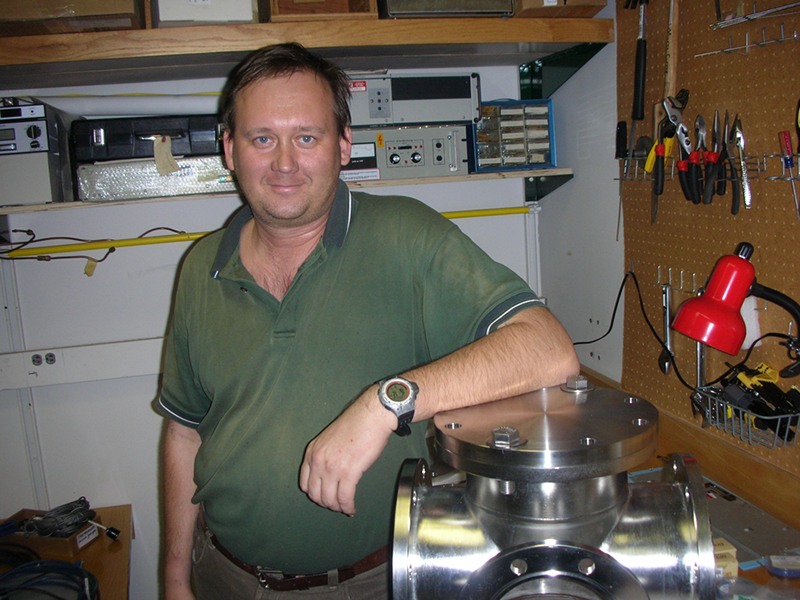
Dr. Sergei Aksyonov, 47, who worked at the Chemistry Department of University of Utah, died on September 11.
Sergei finished high school in Kherson, Ukraine in 1985 and started his bachelor’s degree studies in biophysics the same year. He immediately became popular among the students due to his sense of humor and easy-going character. His quick mind and excellent memory helped him to easily catch concepts in his classes “on the fly”. During his university years he lived an active social life, especially enjoying camping with his university schoolmates. His outdoor adventures included late winter camping in the Crimean peninsula wilderness, typically considered not suitable for camping because of the harsh weather conditions. In his student residence he was known for his ingenious “out of the box” ideas. Once he came up with the idea of gluing a large sky map to the ceiling of his dormitory room. A few constellations, planets, and the pole star were lit with LEDs that were connected to the speakers of his stereo system. Dozens of visitors came to see the shimmering LED stars on his ceiling sky.
Sergei graduated from Kharkov State University in 1990 with a Bachelor’s degree in Biophysics with distinction and started his PhD program in Physics at the Institute of Physics and Technology in Sumy, Ukraine. In 1995 he defended his PhD degree and continued to work at the same Institute as a Staff Research Scientist. In 1996 he met his wife Svitlana, with whom he had two children, Maksym and Anna.
Sergei came to the USA in 1999 to join the laboratory of Prof. Peter Williams at Arizona State University as a post-doctoral research associate. There he developed a new method for ionization of large DNA molecules for mass spectrometry, impacting electrosprayed water clusters in vacuum onto a surface at very high velocity to explode the water and release dissolved DNA. The sponsor referee for Sergei’s paper on this work was Prof. John Fenn, who was shortly to receive the Nobel Prize for his development of electrospray mass spectrometry. Later, Sergei led a team in Prof. Williams’s lab that developed a novel next-generation DNA sequencing approach. Following his work with Prof. Williams, Sergei joined the research team of Prof. Michael Morse at the University of Utah, where he was working to develop an instrument for recording the optical spectra of mass selected ions at extremely low temperatures. These complex and multi-faceted projects covered an extremely broad scientific range and required someone with a unique combination of scientific skills and adaptability. Sergei was the ideal person for those tasks.
Sergei is remembered by his colleagues and friends as an incredibly kind and generous person, a gifted researcher and mentor. He loved the outdoors and enjoyed writing poetry. He is survived by his mother, Antonina, his wife, Svitlana, and his children, Maksym and Anna.
A funeral service will be conducted at the gravesite by Father Justin Havens of the St. Peter and Paul Orthodox Church. This will occur at the Pleasant Green cemetery in Magna, Utah, at 1:00 pm on Saturday, Oct. 10. All of Sergei’s friends and colleagues are invited.
